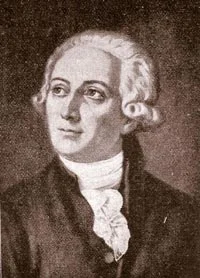
| Born: Aug 26, 1743 in Paris, France |
| Died: May 8, 1794 (at age 50) in Paris, France |
Antoine Lavoisier was a French chemist who helped develop the science into its modern form. He is frequently considered the “father of modern chemistry,” and he was responsible for naming the elements hydrogen and oxygen. He was also one of the supporters of the metric system of measurements. Lavoisier, as a tax collector and nobleman, was arrested after the French Revolution and was executed in 1794.
Early Life
Lavoisier’s childhood was financially secure. He inherited a fortune when he was five years old, after his mother died. He enjoyed a successful early education, which was carried out in the formal fashion that was customary for French nobility and emphasized literature and law. He was also given an excellent scientific background as he was taught by some of 18th century France’s most renowned scientists.
By the age of 25, Lavoisier was already sufficiently skilled to assist in the production of the first geological map of the country. For this as well as his work in developing Parisian water supplies, he was elected to the Royal Academy of Sciences in 1768. Meanwhile, his wealth enabled him to buy a share of an agency specializing in the collection of taxes.
Scientific Career
In 1772, Lavoisier began another phase in his scientific career, taking a particular interest in the process of combustion and the part it played in oxidizing metals. The research he carried out proved to be highly influential in consigning to the history books the incorrect “phlogiston” principle of combustion. Lavoisier also provided clear and logical explanations regarding salts, bases, and acids. While he was engaged in this work, he developed the modern notion of chemical elements, arranging them into the precursor of today’s periodic table.
Lavoisier’s ways of approaching the problems of combustion helped a number of his colleagues adopt true scientific thinking and processes, an event which could be seen as the beginning of modern chemistry both in theoretical and industrial applications. The French government saw the economic potential in Lavoisier’s work and hired him to do research into its practical applications, such as in starch production and the refinement of phosphorus.
Royal Patronage and Death
In 1775, King Louis XVI set up a commission to improve the standard of the French army’s gunpowder supplies. He appointed Lavoisier to be in charge of it. His reports, once implemented, made a major difference to France’s output, allowing the country to become a net exporter of gunpowder for the first time.
Lavoisier himself was responsible for monitoring how his recommendations were being put into practice, and he proved to be adept at that role also. For several decades to come, France would benefit militarily from its high quality gunpowder.
In the 1780s, Lavoisier purchased a plot of land at Frenchines, close to Blois, in the central region of France. He decided to use the scientific principles he had developed to improve the land’s agricultural return. These efforts were quickly successful and in 1788, he published a book containing full details of the experiments that he had carried out.
The book, which is entitled Results of Some Agricultural Experiments and Reflections on Their Relation to Political Economy, is still considered important in the development of agricultural economics. Despite his successes, however, his links to tax collection proved fatal. He was executed at the guillotine, along with his father-in-law, in May of 1794.